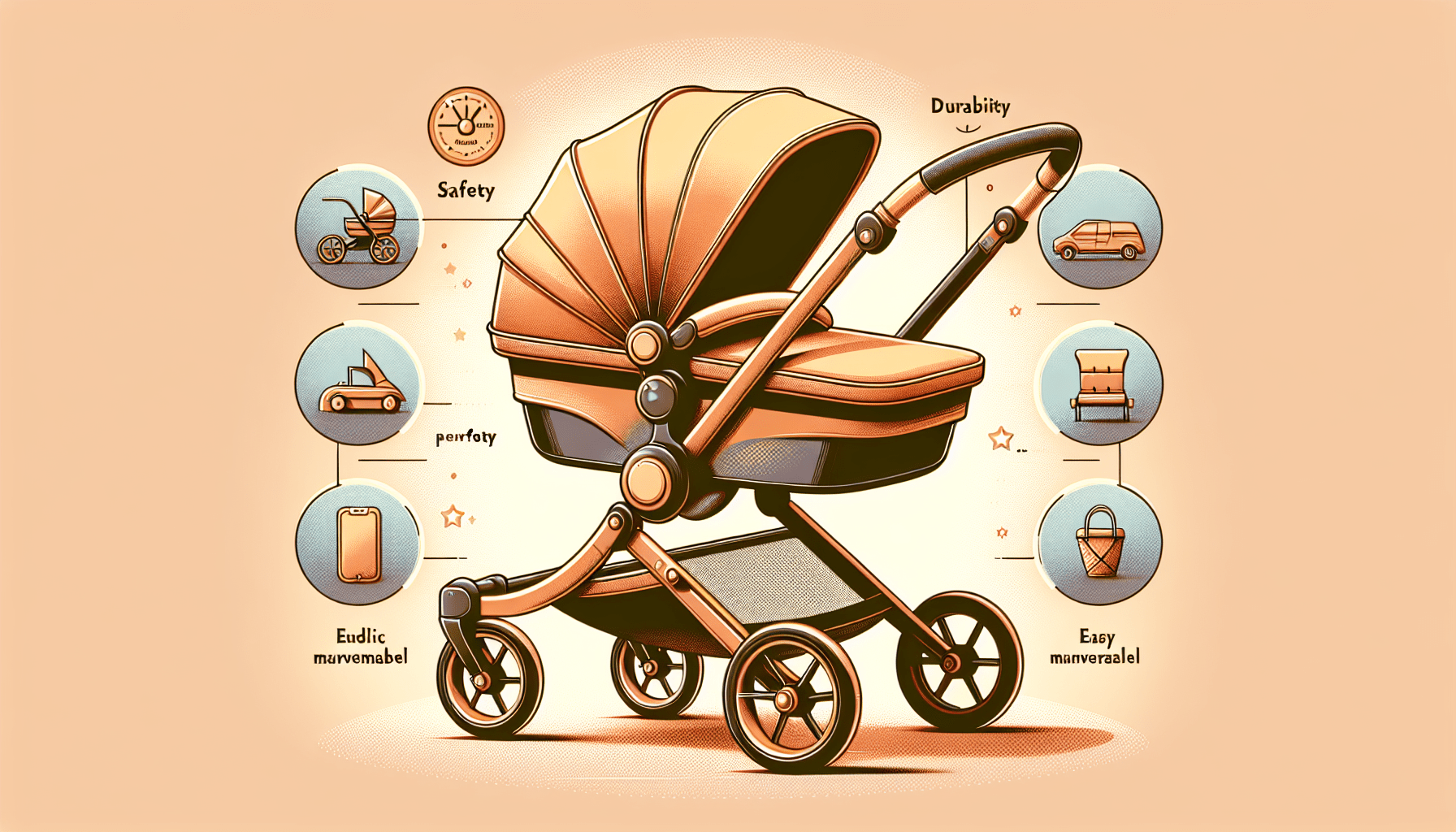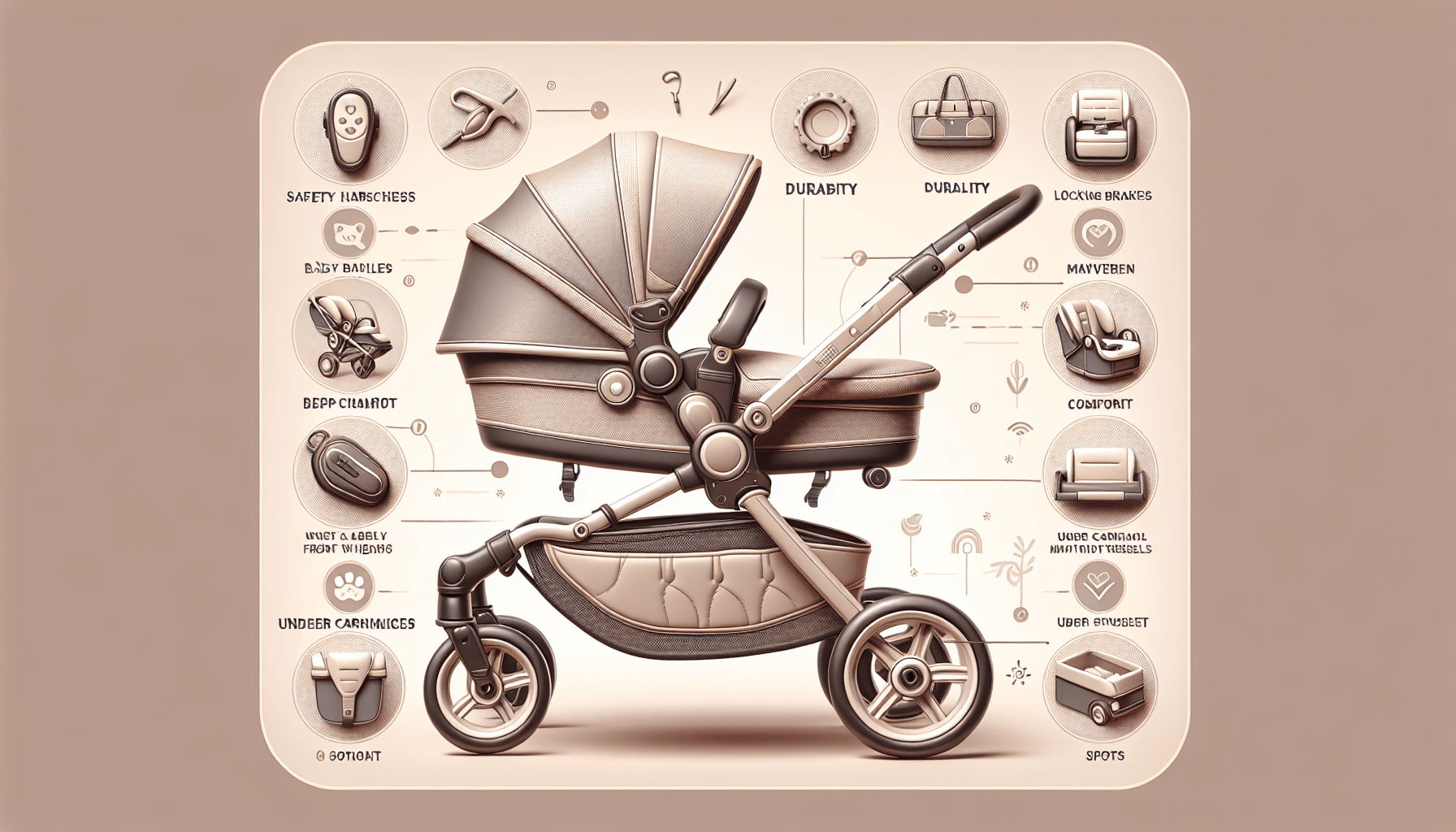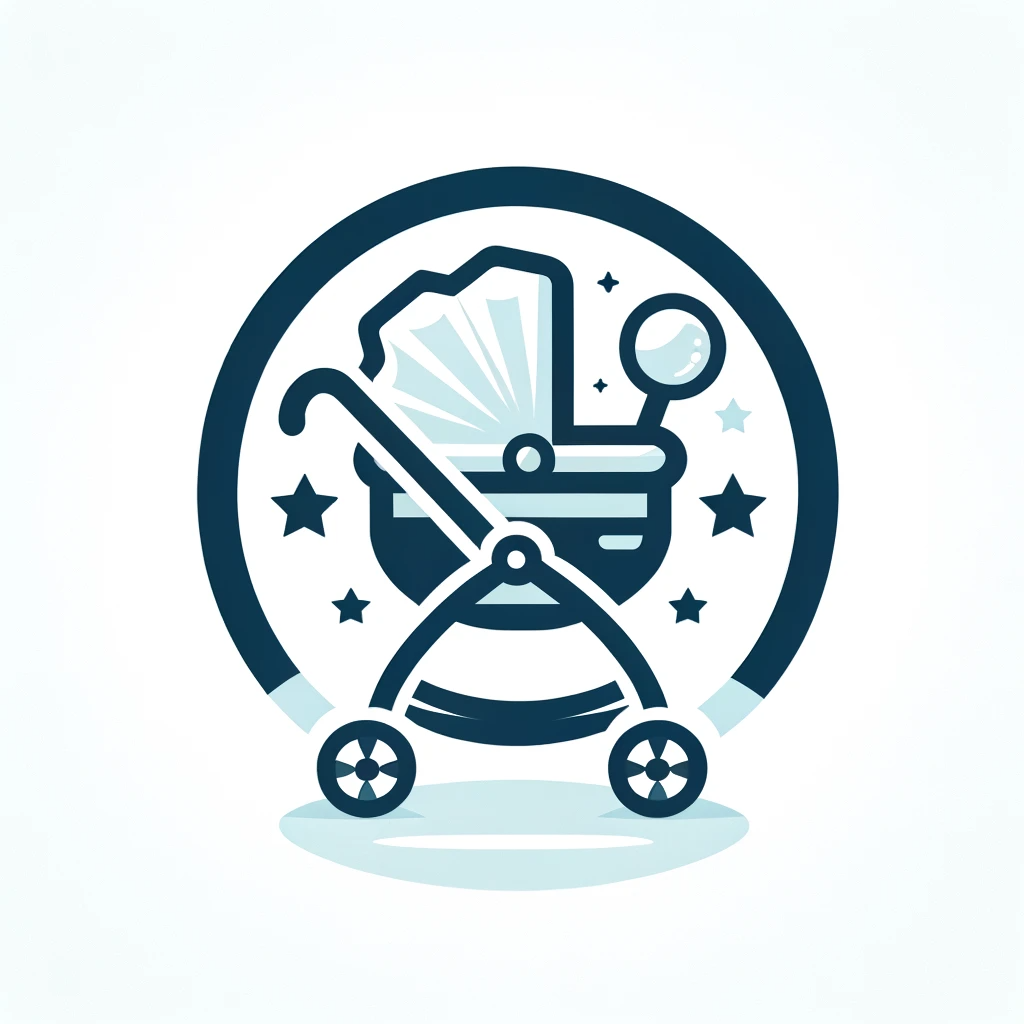Thinking about getting a stroller or bike for your little one? Look no further! We’ve got you covered with the ultimate guide to help you choose the perfect stroller. From essential features to consider to tips on finding the ideal fit for your lifestyle, this article will be your go-to resource for all things stroller-related. So sit back, relax, and let us help you make the best decision for you and your child.
Consider Your Lifestyle
When choosing a stroller, it’s important to consider your lifestyle and how the stroller will fit into your daily routine. Start by evaluating your daily routine and thinking about your transportation needs. Do you live in a city and rely heavily on public transportation? Or do you have easy access to a car and will mainly be using the stroller for walks or trips to the park? This will help determine the type of stroller that will best meet your needs.
Another factor to consider is your storage space. If you live in a small apartment with limited storage, you may want to look for a stroller that is compact and easy to fold. On the other hand, if you have ample storage space, you may have more flexibility when it comes to choosing a stroller.
Determine the Stroller Type
There are several different types of strollers to choose from, each with its own set of features and benefits. Here is an overview of some common stroller types to help you determine which one is right for you:
Full-size strollers
Full-size strollers are versatile and often feature a wide range of seating and reclining options. They are sturdy and durable, making them a great choice for everyday use.
Lightweight strollers
Lightweight strollers are designed for portability and easy maneuverability. They are typically compact and easy to fold, making them ideal for travel or for parents who are always on the go.
Umbrella strollers
Umbrella strollers get their name from their compact and lightweight design. They are typically less expensive than other stroller types and are a popular choice for quick trips or traveling.
Jogging strollers
Jogging strollers are designed for active parents who want to bring their child along on their runs. They have larger wheels and a suspension system for a smoother ride over rough terrain.
Double strollers
Double strollers are perfect for parents of twins or siblings close in age. They can be configured side by side or with one seat in front of the other, depending on your preference.
Travel system strollers
Travel system strollers come with a compatible infant car seat, allowing you to easily transfer your child from the stroller to the car without disturbing them. This can be a convenient option for parents who frequently use their car.
Convertible strollers
Convertible strollers are designed to grow with your child. They can be adjusted to accommodate a newborn with a bassinet attachment and then converted into a regular stroller as your child gets older.
All-terrain strollers
All-terrain strollers are built to handle a variety of terrains, including gravel, grass, and uneven surfaces. They typically have larger wheels and a suspension system for a smoother ride.
Car seat carriers
Car seat carriers are lightweight frames that allow you to attach your infant car seat, creating a convenient travel system. They are a great choice for newborns who are not yet ready for a traditional stroller seat.
Look for Safety Features
When it comes to choosing a stroller, safety should always be a top priority. Look for strollers with the following safety features:
5-point harness
A 5-point harness is essential for keeping your child secure in the stroller. It consists of two shoulder straps, two waist straps, and a strap between the legs, providing maximum safety and comfort for your little one.
Sturdy frame
A sturdy frame is crucial for the overall stability and safety of the stroller. Look for strollers with a solid construction and durable materials that will withstand the rigors of everyday use.

Locking brakes
Locking brakes are important for ensuring that the stroller stays in place when parked. Make sure the brakes are easy to engage and disengage, but also secure enough to prevent any unintentional movement.
Safety certification
When choosing a stroller, check for safety certifications such as ASTM International or Juvenile Products Manufacturers Association (JPMA) seal of approval. These certifications ensure that the stroller meets certain safety standards and regulations.
Reflective materials
If you anticipate using the stroller during early morning or evening hours when visibility is low, look for strollers with reflective materials. These materials will make the stroller more visible to others, increasing safety during low-light conditions.
Consider Maneuverability
Maneuverability is an important factor to consider when choosing a stroller, especially if you plan on using it frequently. Here are some features to look for that will enhance the maneuverability of your stroller:
Wheel size and suspension
Consider the wheel size and suspension of the stroller. Larger wheels with good suspension will make it easier to navigate over uneven surfaces, while smaller wheels are more suitable for smoother surfaces.
Swivel vs. locked wheels
Some strollers have swivel wheels, which allow for easy maneuvering and turning in tight spaces. On the other hand, locked wheels provide stability and control, which can be especially useful when going for a run or navigating rough terrain.
One-handed steering
If you often find yourself needing to multitask while pushing the stroller, look for a model that offers one-handed steering. This feature allows you to have better control of the stroller while still being able to handle other tasks.
Easy folding and unfolding
Choose a stroller with a simple and easy folding mechanism. This will save you time and effort when getting the stroller in and out of your car or storing it away.
Examine Comfort for Your Child
Your child’s comfort is also an important consideration when choosing a stroller. Look for the following features to ensure a comfortable ride for your little one:
Reclining seat
A stroller with a reclining seat will allow your child to nap comfortably while on the go. Look for multiple recline positions, including a fully flat option for newborns.
Adjustable leg rest
An adjustable leg rest will provide additional comfort for your child, allowing them to stretch out and relax during the ride.
Padded seat and harness
A padded seat and harness will ensure that your child is comfortable and secure in the stroller. Look for quality padding that is soft and supportive.
Sun canopy
A sun canopy is essential for protecting your child from the harsh rays of the sun. Look for a canopy that provides ample shade and has a UPF rating for added sun protection.

Cushioned handlebar for parent
Don’t forget about your own comfort as well. Look for a stroller with a cushioned handlebar that provides a comfortable grip during long walks or trips.
Smooth ride
Consider strollers with good suspension and shock absorption to provide a smooth ride for your child, even on bumpy surfaces.
Evaluate Durability and Quality
Durability and quality are important factors to consider when investing in a stroller. Here are some aspects to evaluate:
Sturdy materials
Choose a stroller made of sturdy and durable materials that can withstand the wear and tear of daily use. Look for materials such as aircraft-grade aluminum or high-quality plastics.
Solid construction
Check the stroller’s overall construction for any weak points or potential areas of weakness. Make sure all the parts are securely attached and that the stroller feels sturdy and well-built.
Longevity and warranty
Consider the stroller’s longevity and whether it will grow with your child. Look for strollers with adjustable features or conversion options that will extend the lifespan of the stroller. Additionally, check for a warranty to protect your investment in case of any defects or issues.
Easy maintenance and cleaning
Consider how easy the stroller is to clean and maintain. Look for removable and machine-washable fabric, as well as parts that are easy to wipe down or rinse off.
Consider Accessories and Storage Options
Depending on your needs and preferences, you may want to consider additional accessories and storage options that can enhance your stroller experience:
Cup holders
Having a cup holder for both you and your child can be convenient, especially if you plan on taking long walks or trips.
Storage basket
A storage basket underneath the stroller is a must-have for carrying essentials such as diaper bags, groceries, or shopping bags.
Parent tray
A parent tray, usually located at the handlebar, provides space to store smaller items like keys, phones, wallets, or snacks.
Child tray
A child tray is a useful addition if your child likes to eat or drink while in the stroller. It provides a convenient space for snacks or cups.
Canopy extension
Some strollers offer an extended canopy that provides extra coverage from the sun or rain. This can be particularly beneficial for young babies who are more sensitive to the elements.
Travel bag
If you plan on traveling frequently with your stroller, consider purchasing a travel bag to protect it during transit and storage.
Rain cover
A rain cover is a useful accessory to have on hand, especially if you live in an area with frequent rain showers. It will keep your child dry and protected from the elements.
Size and Weight Considerations
The size and weight of a stroller can greatly impact its usability and convenience. Consider the following factors when evaluating the size and weight of a stroller:
Overall size
Measure the dimensions of the stroller, particularly if you have limited storage space or need to navigate through narrow doorways. Make sure the stroller will fit comfortably in the areas you plan to use it.
Weight capacity
Check the weight capacity of the stroller to ensure it can safely accommodate your child. It’s also a good idea to consider any additional weight you may be carrying, such as diaper bags or groceries.
Collapsed size
If you frequently need to store the stroller in small spaces, such as a car trunk or closet, pay attention to how compact the stroller becomes when folded. This will make transportation and storage much easier.
Ease of lifting and carrying
Consider how easy it is to lift and carry the stroller, particularly if you will need to navigate stairs or carry it for an extended period. Look for strollers with handles at a comfortable height and adequate grips.
Check User Reviews and Recommendations
Before making a final decision, take the time to read online reviews and ratings from other parents who have purchased and used the strollers you are considering. Their firsthand experiences can provide valuable insights into the pros and cons of each stroller.
Additionally, ask friends and family members for their recommendations. They may have personal experience with certain stroller brands or models and can offer useful advice.
Consulting parenting forums and communities can also provide a wealth of information and recommendations from a wide range of parents with different perspectives and experiences.
Set a Budget
When evaluating strollers, it’s essential to set a budget to ensure you stay within your financial means. Determine your spending limit and consider the long-term value and quality of the stroller.
While it may be tempting to opt for a budget-friendly option, keep in mind that a higher-quality stroller may offer better durability, functionality, and safety features. Consider the stroller as an investment that will be used regularly and potentially passed down to future siblings or sold to recoup some of the cost.
By considering your lifestyle, determining the stroller type, looking for safety features, evaluating maneuverability, examining comfort for your child, assessing durability and quality, considering accessories and storage options, thinking about the size and weight, checking user reviews and recommendations, and setting a budget, you can confidently choose the right stroller for you and your child. Remember to prioritize the features that align with your specific needs and preferences, and don’t hesitate to test out different strollers before making your final decision. Happy stroller shopping!


